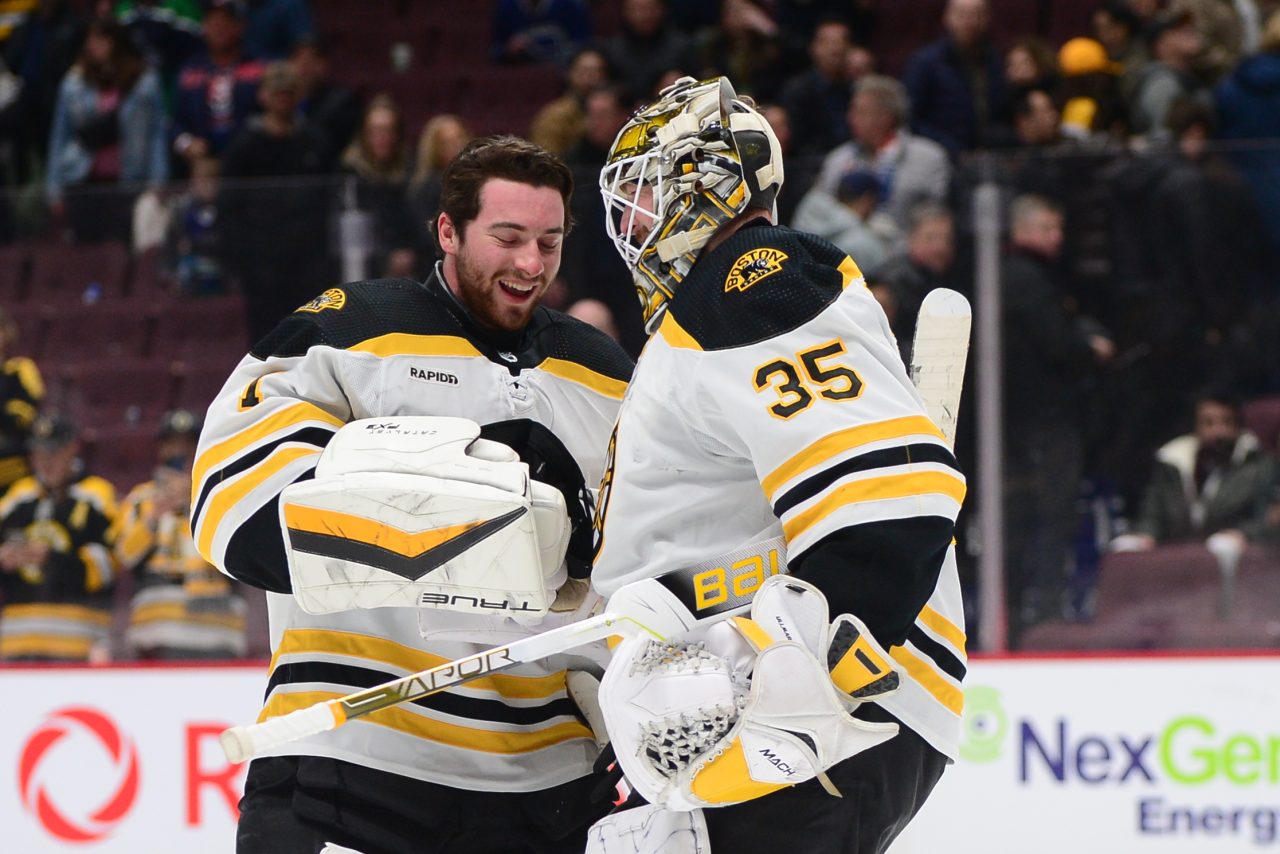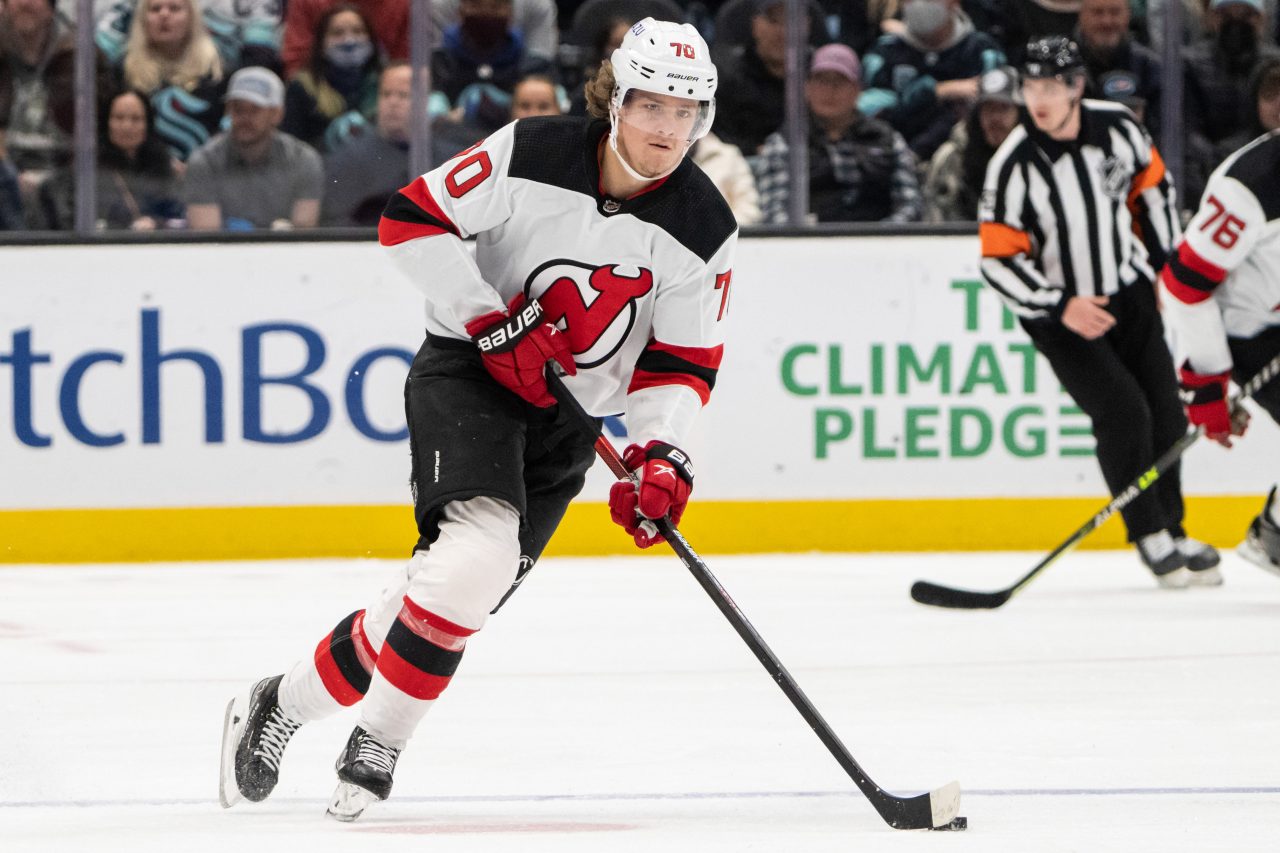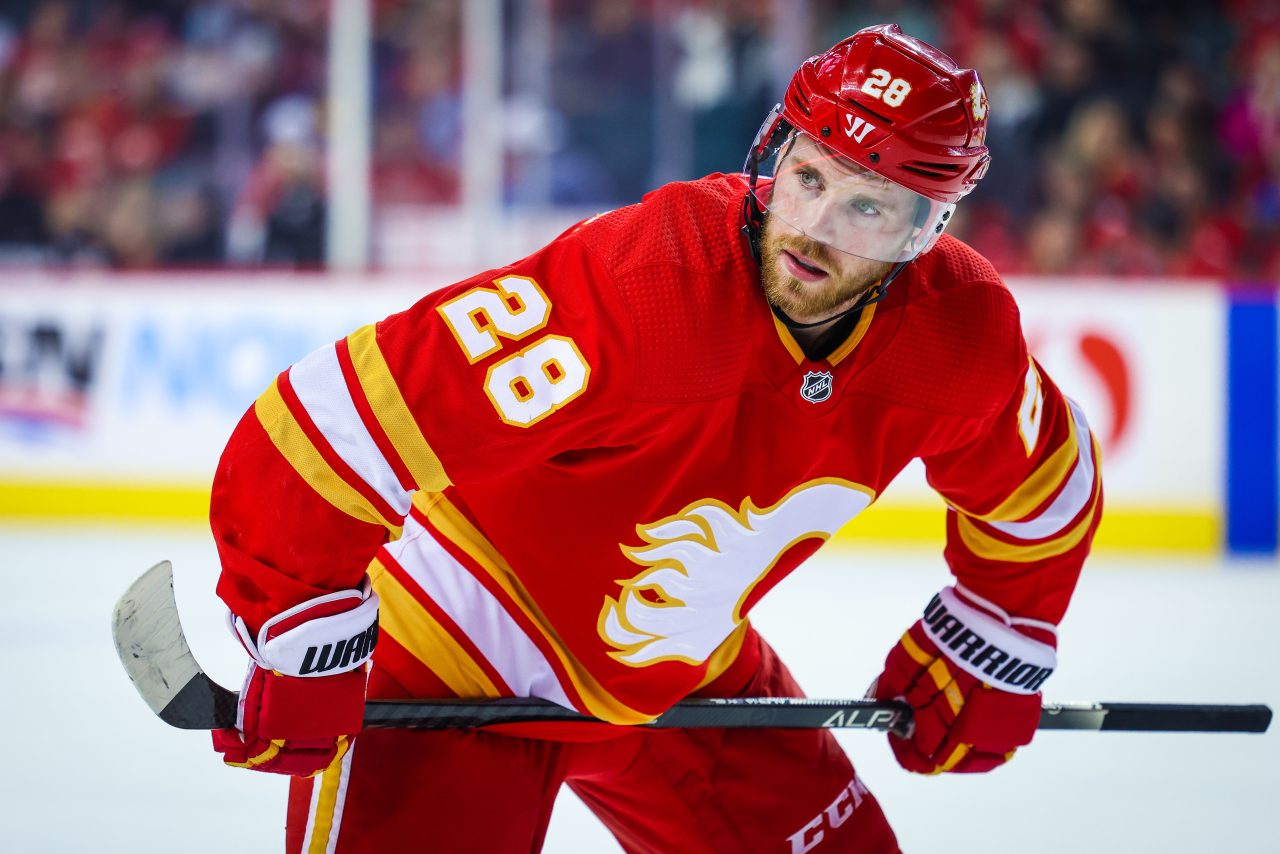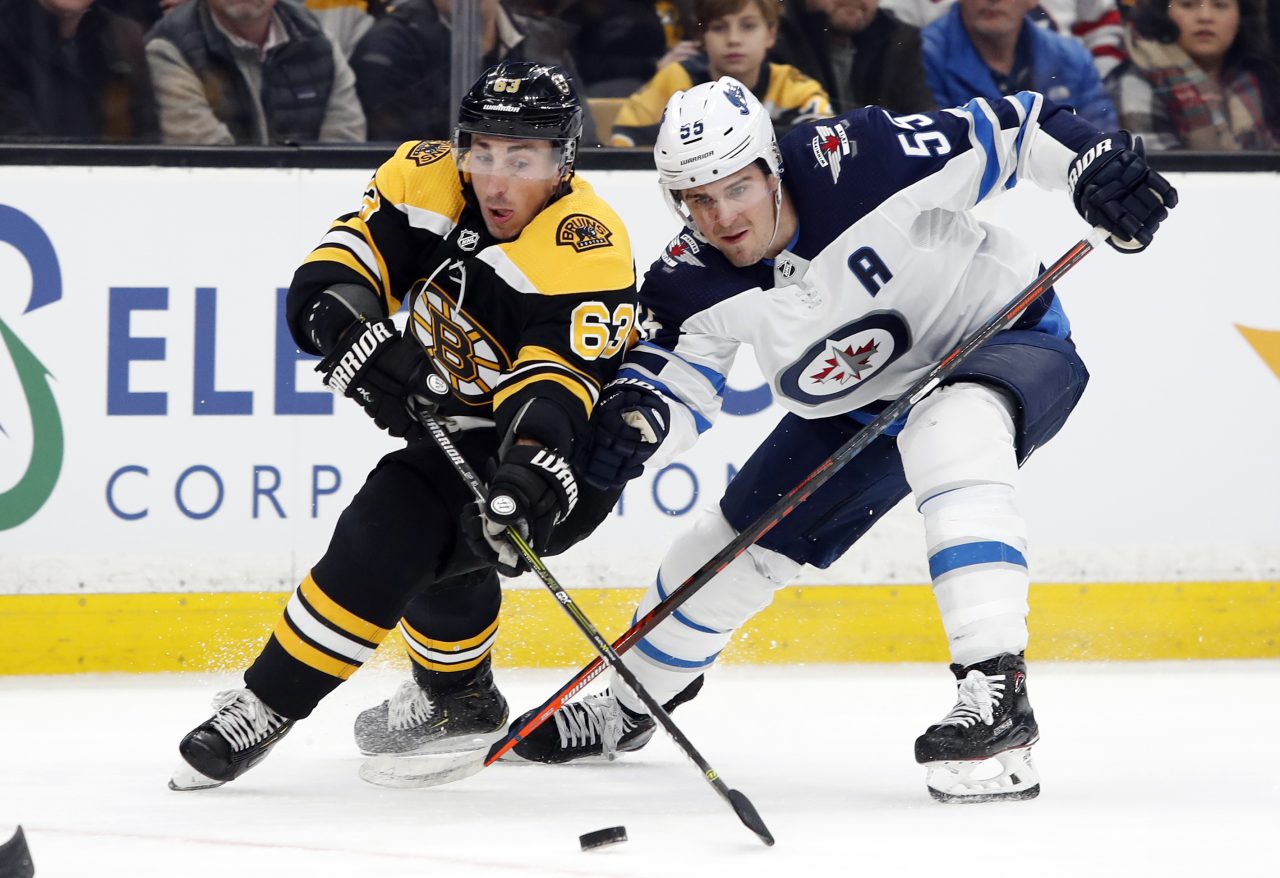How do you replace an almost perfect hockey player? How do you replace one of the best leaders in NHL history? How do you replace someone who consistently played at a high level at both ends of the ice for nearly two decades?
The Boston Bruins are facing the enormously difficult challenge of having to answer all these questions now that Patrice Bergeron has retired after 19 seasons with the Original Six franchise.
WATCH ANYTIME FOR FREE
Stream NBC10 Boston news for free, 24/7, wherever you are. |
"As hard as it is to write, I also write it knowing how blessed and lucky I feel to have had the career that I have had, and that I have the opportunity to leave the game I love on my terms. It wasn't a decision that I came to lightly," Bergeron wrote in a statement announcing his retirement decision. "But after listening to my body, and talking with my family, I know in my heart that this is the right time to step away from playing the game I love."
More Bruins coverage
Get updates on what's happening in Boston to your inbox. Sign up for our News Headlines newsletter.
Bergeron meant so much to the Bruins, and his legacy will live on for a very long time. There will be ample opportunity to reflect on that part of his career. In the immediacy, the team must figure out how it will go forward without an elite player.
Make no mistake: Bergeron was still one of the very best players at his position at 38 years old.
He has won back-to-back Selke Trophies as the league's premier two-way forward. He has been one of the best faceoff centers in the league for most of his career, including a 61.8 win percentage that ranked No. 2 among all centers who took 900-plus draws last season.
The ice was constantly tilted in Boston's favor when Bergeron stepped over the boards for a shift. The B's accounted for 58.9 percent of all shot attempts with Bergeron on the ice at 5-on-5 since 2010-11, and that's the best mark of any player during that span. Bergeron's defensive skill set receives a ton of praise, and rightly so, but he also was a consistently productive offensive player his whole career. He scored 27 goals last season, which extended his streak of tallying 20-plus goals to 10 years.
And let's not forget Bergeron's work as a great penalty killer. His success in that area helped the Bruins finish top 10 in penalty killing throughout his career, especially of late.
- 2016-17: 1st
- 2017-18: 3rd
- 2018-19: 16th
- 2019-20: 3rd
- 2020-21: 2nd
- 2021-22: 9th
- 2022-23: 1st
As you can see in the graphic below, Bergeron ranked in the top percentiles of so many important stat categories over the last three seasons, all while he approached the end of his career in his late thirties.
Who steps in for Bergeron as the No. 1 center? Charlie Coyle probably gets the first crack at it, alongside Brad Marchand and Jake DeBrusk on the first line.
This trio has played just 52:21 of 5-on-5 ice time together over the last three seasons. In that time, this line has earned a plus-11 edge in shot attempts, a plus-4 lead in shots on net, a plus-7 advantage in scoring chances and a plus-1 goal differential. We also saw this trio play pretty well in Games 3 and 4 of the first-round playoff series against the Florida Panthers when both Bergeron and David Krejci were out of the lineup with injuries. The B's won both games by a combined score of 10-4.
In many ways, those two games in Florida were a preview of what's to come at the center position. Coyle will likely slide into the No. 1 center role and Zacha will become the No. 2 center, assuming Krejci also retires this offseason.
Zacha quickly developed impressive chemistry with David Pastrnak last season. It was the two Czech forwards' first season playing together, and the results spoke for themselves. Pastrnak scored a career-high 61 goals and Zacha posted career highs in goals (21), assists (36) and points (57) with Krejci in the middle.
Coyle is best suited as a No. 3 center, where he has played most of his career and is able to feast on inferior competition. He's a solid, two-way forward who's tough to knock off the puck and has underrated offensive ability. But he's not a true top-six center. Zacha is a No. 2 caliber center if he produces at the rate he did last season. But we've only seen him produce at that rate for one season, and he did it alongside two high-end offensive players in Pastrnak and Krejci. It's fair to assume Zacha will score close to that rate going forward, but it's far from a given.
Here's what the Bruins' forward lines could look like on Opening Night in October.
Brad Marchand--Charlie Coyle--Jake DeBrusk
James van Riemsdyk--Pavel Zacha--David Pastrnak
Jakub Lauko--Trent Frederic--Morgan Geekie
Milan Lucic--Patrick Brown--A.J. Greer
Bruins trade targets/rumors
Overall, going from Bergeron and Krejci as your top-six centers to Coyle and Zacha is a meaningful downgrade. That doesn't mean Coyle or Zacha aren't productive players. It's just not a Stanley Cup-contending 1-2 punch at center.
To say the Bruins have not prepared well for Bergeron's exit even though they had ample time to do so would be kind. Center has been one position in which they've massively failed to draft and develop in for over a decade.
The last natural center the Bruins drafted who played at a high level in a top-six role was Tyler Seguin, but he played mostly wing with the B's and was traded in the summer of 2013 after just three seasons in Boston. Outside of Bergeron and Krejci, who were drafted in 2003 and 2004, respectively, the Bruins have swung and missed on almost every center they've selected. They spent first- or second-round picks on centers such as Zach Hamill, Joe Colborne, Jordan Caron, Alexander Khokhlachev, Ryan Donato, Jakob Forsbacka-Karlsson, Jack Studnicka and John Beecher during that span, and none of them have made a major impact for Boston at the NHL level.
There are a few good center prospects in the Bruins' system right now, though. Matthew Poitras -- a second-round pick in 2022 -- just finished fifth in the OHL with 95 points (16 goals, 79 assists) in 63 games. Brett Harrison -- a 2021 third-round pick -- posted career highs with 34 goals and 69 points in 57 OHL games last season. Georgii Merkulov led the Providence Bruins in scoring with 55 points as a AHL rookie in 2022-23. These players represent some hope for the future, but none of these guys are going to be top-six caliber centers anytime soon. And there's a decent chance none of them ever rise to that level.
So how do the Bruins replace Bergeron's on-ice production in the quickest fashion? The trade market is the obvious answer.
Winnipeg Jets center Mark Scheifele and Calgary Flames center Elias Lindholm are entering the final year of their respective contracts. If they don't plan on re-signing, those teams would be wise to trade them and not risk losing a prime asset for nothing in free agency next summer.
Scheifele scored a career-high 42 goals last season and has averaged 31.8 goals over the past five years. He's not as strong defensively as Lindholm, but his offensive ceiling it a bit higher.
Lindholm is a two-way star who scored a career-high 42 goals and finished second in Selke voting behind Bergeron in the 2021-22 season. He has averaged 65 points over the last five seasons.
Lindholm is a better fit than Scheifele based on his all-around skill set and the fact that he's two years younger. At 28 years old, Lindholm would fit the timeline of the Bruins' top two stars in Pastrnak (age 27) and Charlie McAvoy (age 25).
Replacing a player of Bergeron's caliber is almost impossible. Not only did he put up stellar stats, he did all the little things that don't show up on the stat sheet, like almost always being in the proper position, coaching up teammates on the bench, hustling on every shift, playing through injuries that would keep most guys out for months, etc.
He is one of the top five or seven players in Bruins history and a lock to be inducted into the Hockey Hall of Fame and have his No. 37 retired to the TD Garden rafters.
The Bruins don't have any strong internal candidates, either on the NHL roster or in their prospect pool, to adequately replace Bergeron this coming season. But they do have some options in the trade market and a projected $30.9 million in salary cap space next offseason. That's when the Bruins can really go to work and re-tool their depth and talent down the middle for the post-Bergeron era.





